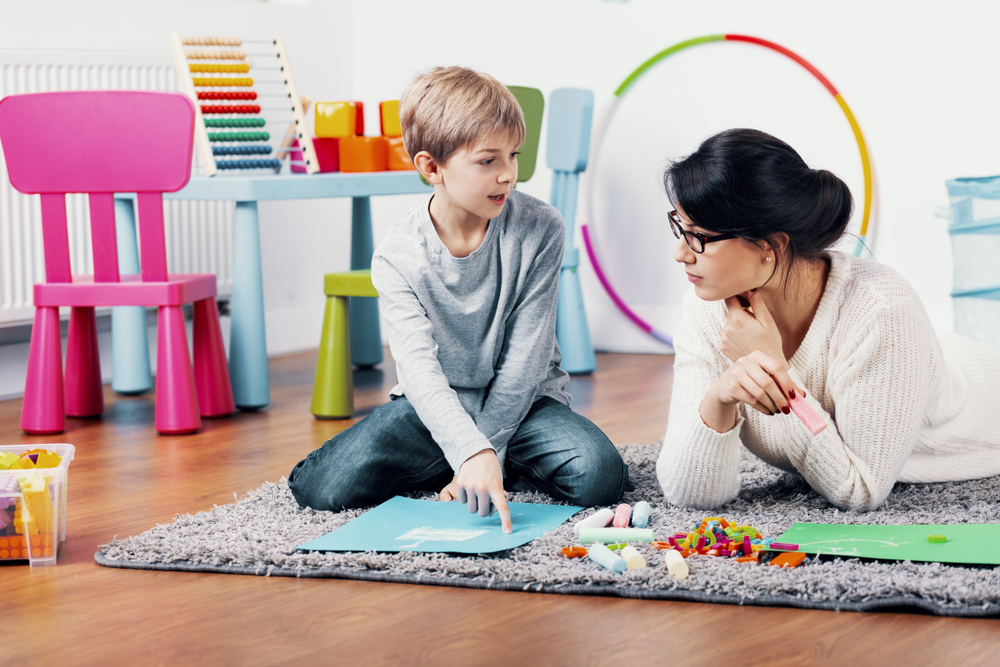Creative Arts Therapies for children includes art therapy(AT), music therapy(MT), dance movement therapy(DMT), play therapy(PT), and drama therapy(DT). These have been practiced in medical environment gradually. Based on the personal preferences, clients’ need can be met by a suitable therapy service. When the client establishes a trusting relationship with the therapist, they will be more willing to discuss their needs or difficulties in daily life. The process would enhance the client’s sense of self, self-esteem, and establish their confidence. It might improve their inner flexibility, social emotional skills, and the capacity of problem-solving.
Arts Psychotherapy
The service of art psychotherapy is a form which offer users to make arts as a primary mode of communication and expression. Within the therapist’s support, the client may explore their wide range of difficulties, such as emotional experience, behavioral or mental health problems, learning or physical disabilities, life-limiting conditions, neurological conditions and physical illnesses. When the client engage in making art, they might presents their inner world through non-verbal ways, such as images, stories or playing.
It is not necessary be good at making-art for this service, the emphasis is that how the process of art-making relate to the client, rather than the artwork itself. These process could support one to integrate the client’s sense of self and emotional awareness. Therefore, it might improve the ability of communication and expression or expand psychological resilience.


Music Therapy
Music can be a medium to accompany clients who suffer from some difficulties which include physical, behavioural, emotional, cognitive, and interpersonal needs, etc. Their needs can be met through various musical activities, such as singing, playing, listening to music, and improvising songs. Clients can explore their inner and outer selves within the music space created by the therapist and clients. When the therapeutic relationship is built up, the music therapist can support them to feel and reflect on their emotions and experiences. Following the process of making the music together, clients may sense themselves, find the voice to express their thoughts, and develop their coping skills to face difficulties.
Target
Children under 6 years old with early intervention, primary school students over 6 years old, teenagers, parents and children, and adults.
Indications
- Children and teenagers with emotional difficulties (i.e. depression, anxiety, and opposition).
- Children and teenagers with difficulties in interpersonal interaction and relations.
- Autism, Asperger syndrome, ADHD, ADD, Oppositional defiant disorder, selective mutism, Tourette syndrome, developmental delay, emotional distress related to learning disability, interpersonal or behavioral problems.
- Bully, trauma, bereavement, and losses.
- Parent-children or sibling confrontations.
- Parents wishing to increase knowledge in parenting
Objective of Therapy
- Establish confidence
- Promote ability to express and communicate
- Develop creativity
- Improve emotional or behavioral difficulties
- Enhance problem-solving capacity skills
- Upgrade concentration
- Improve interpersonal skills
Services
- The therapy takes the form of one-to-one with the client, in group or parent-children. Discussion will be made with parent of pre-school children to see if the parents should company the children during the session.
- After the initial assessment, a fixed session weekly or fortnightly will be scheduled. Each individual session is 50 minutes. Group sessions would be 60 minutes.
- Any art and music skills are not required for participants.
Service Process
- Appointment: Please make an appointment with the Division of Child and Adolescent Development and Mental Health.
- The therapist will contact you via phone to explain the service process.
- Make appointment for assessment day.
- Initial assessment: After the clients initial session, the parents will have a conversation with the therapist for discussing the assessment and the objectives of therapy.
- Start short-term or long-term therapy.

